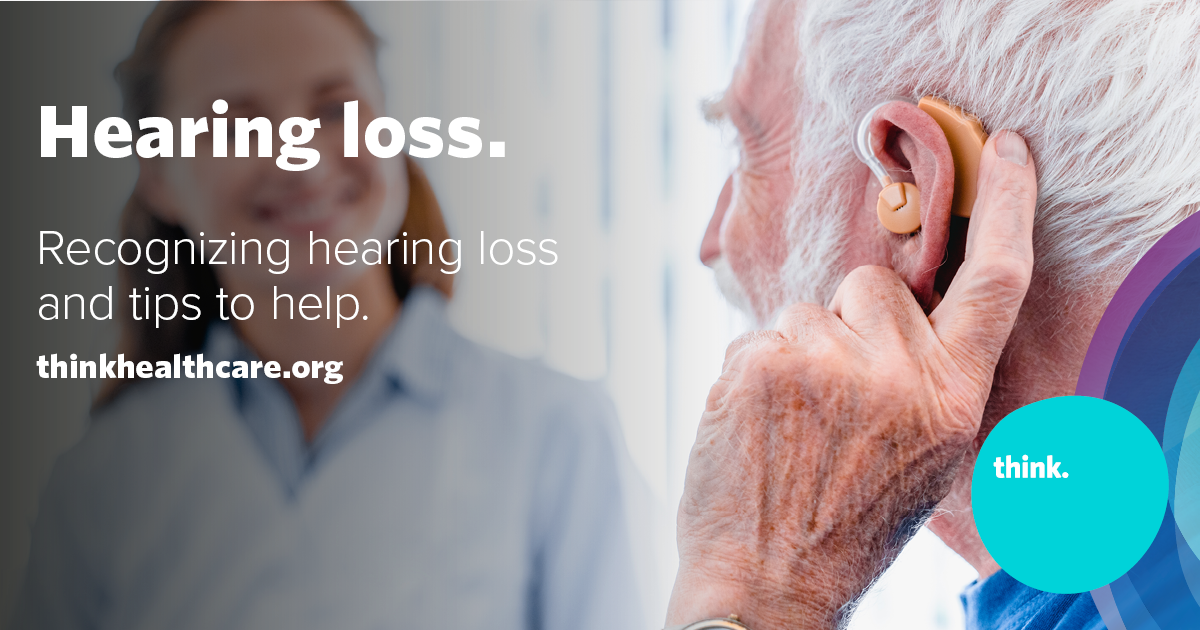Progressive hearing loss can be so subtle you may not even know you are experiencing it.
Approximately 30 million people in the United States have some hearing loss in both ears, and 25% of people between the ages of 65 – 74 have a disabling hearing loss. Determining whether or not you need hearing aids or amplification can be difficult.
Reasons people may not know their hearing has diminished.
Many people lose their hearing slowly over time and may not notice their hearing has diminished. Humans are amazing creatures and can adapt to almost anything. People often compensate for slight hearing loss in many ways. People with diminished hearing often pretend they hear an entire conversation but only catch enough context to go undetected.
For other folks, acknowledging changes in their hearing can cause people to think they are less than or “broken,” creating more of a desire to ignore their condition.
The social stigma of hearing loss has lessened over the years as hearing amplification equipment has become more sophisticated and discrete. But for many older Americans still carry that stigma that places them in a lower social class. This mental dissonance can increase the subconscious to deny any problems they may experience regarding their hearing.
How do I know I may have a loss of hearing?
If you are like the 30 million Americans living with some level of hearing loss, you probably have grown to accept it or just gotten accustomed to hearing a portion of what’s going on around you.
Here are five simple questions you can ask to determine if you are experiencing hearing loss and may need some amplification device.
Do people seem to mumble or speak in a softer voice than they used to?
Often as we age, our hearing will diminish. We slowly adapt to the changes, but eventually, the loss of hearing can’t go unnoticed. If you find yourself struggling to hear someone or ask people to “speak up” more than others, you may benefit from an audiology examination.
Do you feel tired or irritable after a long conversation?
Let’s face it. Listening to others—especially when you may have some hearing loss, is hard work. It can be quite a drain on someone’s energy and patience. If you feel frustrated, irritable, or physically tired after a conversation, please schedule an appointment to have your hearing assessed.
When in a large group or a crowded environment, is it difficult to follow the conversation?
Ambient noise from crowds is already challenging for those with good hearing. As an individual with diminished hearing, following a conversation in a crowd is nearly impossible for someone with hearing loss. If you struggle with following a conversation or needing to focus on the person’s mouth while they are speaking, you may benefit from hearing amplification.
Has someone mentioned that the tv or radio is much louder than it used to be?
Others that don’t watch television with you regularly may notice the volume is high, whereas you are used to the level. Hearing amplification can help with not only clarity but the need to turn up your television’s volume.
Has a family member or friend suggested you may have a hearing loss?
Loved ones don’t like to bring up difficult topics. Hearing loss doesn’t have to be one. If your family member or loved one casually jokes about your hearing or sincerely brings the topic up, listen to them and seek a consultation. In many cases, you can enhance your hearing with minimal intervention.
How can you be proactive with hearing loss?
Here are three things you can do to proactively care for your hearing:
- The American Academy of Audiology recommends a baseline hearing test for those who are 50 and older.
- Try to avoid loud noises. If you cannot avoid loud sounds, wear protective equipment.
- See your think Primary Care provider regularly. We recommend annual physicals regardless of age. If you need a provider, visit our Meet Your Doctor section.
I think I have hearing loss. Now what?
If you or a loved one thinks they have hearing loss, schedule an appointment with your Primary Care physician, who can refer you to an audiologist. Your doctor can assist with referring you to a specialist like ENT Consultants/Omaha Hearing Aids who can see you right in the Think Whole Person Healthcare building. Or call ENT Consultants/Omaha Hearing Aids at 402.778.5250 to schedule an appointment.
